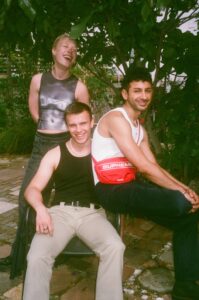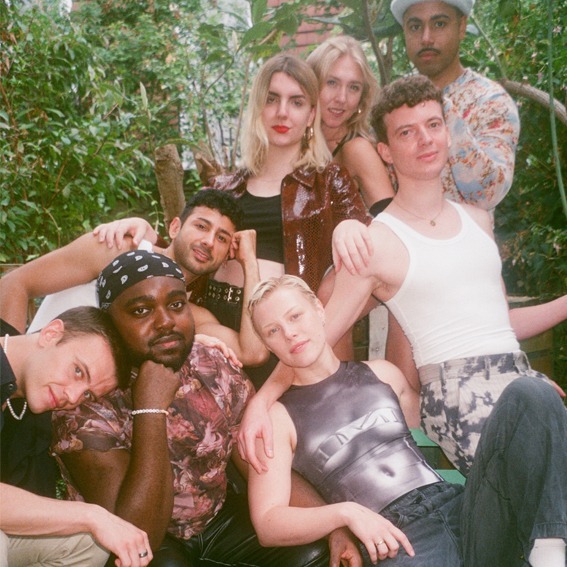
ON RAILTON ROAD ⭐︎⭐︎⭐︎⭐︎
MUSEUM OF THE HOME, HOXTON, LONDON
It’s hard to believe, but free housing was once plentiful in London. In the 1970s and 80s, squatting was common and there were empty properties all over the city. Queer groups of people squatted too. One such group, the Brixton Faeries, famously held court in a group of squatted properties on Railton Road, Brixton, then one of London’s poorest, but also most radical and exciting communities. The Brixton Faeries were a queer theatre group that produced a variety of productions highlighting queer prejudice, oppression and the power of the patriarchy.
 From 1974 until 1976, 78 Railton Road, Brixton was the South London Gay Community Centre. This pioneering place also squatted, brought queer people together for political action and social inclusion. The centre offered everything from wrestling in the basement to knitting circles in the upstairs front room. Railton Road attracted all sorts of queers, from those fleeing oppressive domestic situations to those just looking for hedonistic homo fun. The squats were a heady mix of sexual experimentation – this was the era of free love – and political activism. Food, sexual partners, clothes, gardens and political activist ideas were all shared.
From 1974 until 1976, 78 Railton Road, Brixton was the South London Gay Community Centre. This pioneering place also squatted, brought queer people together for political action and social inclusion. The centre offered everything from wrestling in the basement to knitting circles in the upstairs front room. Railton Road attracted all sorts of queers, from those fleeing oppressive domestic situations to those just looking for hedonistic homo fun. The squats were a heady mix of sexual experimentation – this was the era of free love – and political activism. Food, sexual partners, clothes, gardens and political activist ideas were all shared.
On Railton Road is a play by Ian Giles and Louis Rembges, collectively known as the Brixton Pansies. Based on archive interviews with some of the queer squatters on Railton Road, the play, currently on at Hoxton’s Museum of the Home, recreates a particularly heady period in London’s queer history. What follows is a very entertaining, sexy, thought-provoking couple of hours as we follow the squatters in their daily lives as they survive and thrive – romantic relationships, communal eating, political activism (Gay is Good!) and acting shows. Each scene features part of Mr Punch’s Nuclear Family, the first play performed by the Brixton Faeries. The play attacked patriarchal values by showing the awful effects of an attack by a father on his gay son and a feminist mother, which was followed by collusion with a male-dominated legal process resulting in the acquittal of the father. The cast does an excellent job of recreating community. Energy, perfect timing, passion and humour abound, with stand-out performances by Jamal Franklin as Darie and Manish Gandhi as Ned. Fantastic pantomime-style props combined with a minimal set. The Museum of the Home hasn’t hosted theatrical performances before, and as such, theatrical elements such as good lighting are somewhat lacking, although this does support the raw community centre vibe of the play. The ending of the play is somewhat flat compared to the rest of the scenes, although I guess this reflects that all good eras come to an end. A fun night out.

Queerguru’s Contributing Editor Ris Fatah is a successful fashion/luxury business consultant (when he can be bothered) who divides and wastes his time between London and Ibiza. He is a lover of all things queer, feminist, and human rights in general. @ris.fatah

